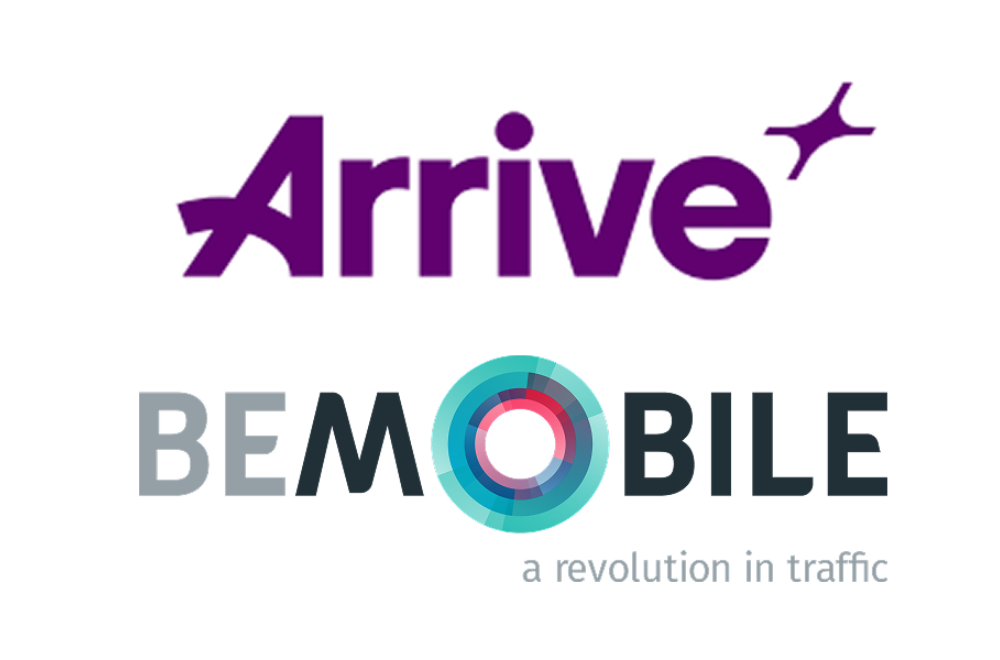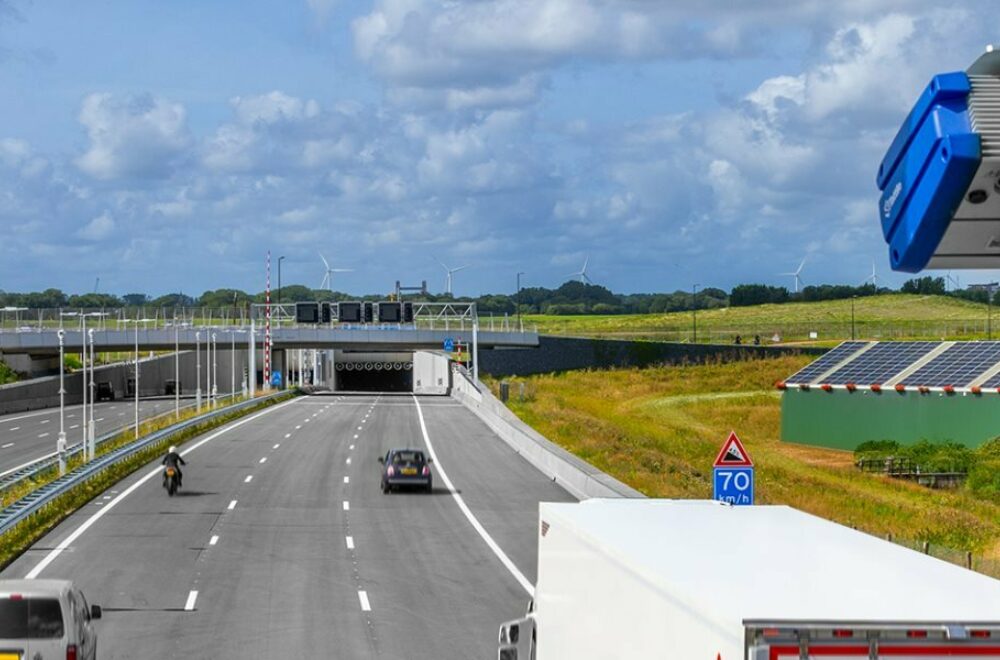
19 April 2022
19 April 2022 - Imagine if you could increase your chances of hitting green lights on your drive home. Or if ambulances could have a clear path through every intersection? Or if traffic lights adapted their sequence according to how many vehicles, pedestrians and cyclists were heading towards them. With the launch of its cloud-based traffic light exchange, the Mobilidata consortium is taking a big step towards this world. A world where optimized traffic flow improves journey times and safety for all road users and reduces emissions and pollution.
On April 19,’22, the Mobilidata consortium launched the first technological building block in its plan for a safer, more efficient traffic system in Flanders with the release of the cloud-based platform TLEX®. This platform allows two-way, interactive, digital communication between intelligent traffic lights and road users of all kinds – including drivers, pedestrians, cyclists – via applications on their smartphone.
How this connected mobility works
When intelligent traffic lights and road users connect via the TLEX® platform, the intelligent traffic light shares information on its signal phases with road users in the vicinity. In return, road users share their location with nearby intelligent traffic lights. Road users and traffic lights can then adapt their behavior (e.g. speed of travel or length of red lights) , helping to optimize the traffic flow for all road users. The newly launched cloud-based platform provides the infrastructure for delivering all those messages.
A proven platform
The TLEX® platform is by far the most advanced of its kind. It is produced by connected intelligent transport system (C-ITS) data aggregator Monotch. Monotch has extensive expertise in connected mobility and is one of the partners in a consortium of smart mobility companies led by Be-Mobile that has been tasked with delivering the sustainable digital data infrastructure for the Mobilidata program. The cloud-based platform provides the ideal bedrock for the Mobilidata infrastructure. Capable of reliably routing millions of communications per minute, the platform has already proven its capabilities in the Netherlands as part of the Talking Traffic project; the platform connects all the country’s intelligent traffic lights.
In Flanders, 15% of all traffic lights will be equipped with intelligent technology by the end of next year to support bi-directional communication between traffic lights and road users. The Netherlands and Flanders are global front runners in intelligent traffic management and the consistency between Talking Traffic and Mobilidata helps provide stability and joint governance.
“Some fifteen years ago, as I was just starting out as a researcher, I came across this concept of smart traffic lights that exchange data. Despite all international research efforts in this field, there was only one country in the world that had actually rolled this out on a large scale to the day-to-day lives of road users: the Netherlands, via the Talking Traffic program. The fact that Flanders, thanks to the Mobilidata program, is now rolling out intelligent traffic lights and at the same time further developing the technology, is a world-class achievement we can be very proud of.”
- Wim Vandenberghe, Senior Advisor ITS, Mobilidata
Standards-based approach
Previously, traffic management communication requirements have been defined by the various equipment suppliers leading to a number of proprietary protocols and a difficult landscape for organizations looking to develop services and apps.
To enable an ecosystem that can stimulate app and service rollout, Mobilidata uses standardized connection and data exchange protocols. These protocols are based where possible on existing international standards as described, for example, by ETSI and by the European Union’s C-Roads initiative. Mobilidata plus road authorities in Flanders and the Netherlands are also working to further develop and refine the specification of these protocols as required. The resulting standards will be published via the CROW knowledge platform, and/or integrated into the next iteration of C-Roads specifications. This standards-based approach will help to ensure harmonization with (future) traffic management services in other regions and countries, opening the door to cross-border and international services.
Within months of launching the TLEX® platform, the program will extend the platform with an interchange component that will be responsible for the low-latency exchange of Mobilidata messages not related to traffic lights. This component will constantly be in touch with various public data sources to gather information relevant to road conditions including weather forecasts, road works status, accidents, temporary speed restrictions, etc.
Speed and reliability
As a cloud-based system, the TLEX® platform offers many benefits over short-range solutions based on direct sharing of data between road users and traffic lights. But also, the long-range benefits for emergency vehicles – firetrucks, ambulances and police vehicles – are crucial. By informing the intelligent traffic lights in advance that an emergency vehicle, urgently heading for an incident, is approaching the intersection, the traffic light can not only give a priority green light to the emergency vehicle but it can also clear the intersection before the emergency vehicle arrives.
The cloud-based architecture also helps to ensure a reliable service, since such a service can be continuously monitored and managed. It is also possible to establish backup systems in the cloud to avoid service interruptions in the case that frontline systems are down. Sometimes concerns are raised that this centralized approach with all users and suppliers of data connected to one point in the cloud would not be fast enough to support real-time data sharing for the envisaged C-ITS use cases. But experience has learned when designed and implemented well (e.g. making use of low-latency publisher-subscriber communication patterns, precise clock synchronization across all system components, definition of latency budget for every component type), then this centralized approach can certainly be fast enough.
“Commissioning of the TLEX® is a significant step in the development of smart mobility for Flanders. It enables the secure and reliable exchange of information between road users and traffic lights which can be used to make the transport system safer, more efficient and more environmentally sustainable. Monotch is proud to have been chosen by Flanders to participate in the Mobilidata project based on our signature product and our extensive experience.”
- Mark Walker, Project Manager of Monotch
Of course, data quality is essential for reliable connected traffic management. To support high data quality, strategic research center imec and road authorities in Flanders and the Netherlands have set up a test environment to support the certification for each part of the system related to the intelligent traffic light use cases: the intelligent traffic lights, the cloud-based platform, other parts of the Mobilidata architecture, and all apps that use it.
Data protection
With potentially millions of road users sharing their information, data privacy is a critical concern – and is embedded in the design of the Mobilidata system. At this point, a data protection impact assessment (DPIA) is carried out to assess and mitigate the potential privacy risks before implementation. Only when that is finished, and adjustments fully approved, will the platform start to process data shared by road users.
The system operates as a managed service, with the government authorities of Flanders in charge of data governance. All data users, such as service operators or municipalities that own traffic lights, are required to agree to rules on data usage and GDPR rules are followed throughout the chain.
Seeing the difference
So, what difference will road users in Flanders see with the launch of the Mobilidata cloud-based platform? Well, initially none as the exchange itself is just the vital yet invisible infrastructure to enable future traffic management services. The benefit for road users will only become apparent once those services and apps are in place, which is expected in late 2022 to early 2023.
To showcase the potential of the system, Mobilidata is cooperating with existing apps that will expand their services to support new connected traffic solutions. The first use case will offer emergency vehicles priority passage through intelligent intersections when responding to an incident. By next year, other road users could receive a message (or warning) indicating that an emergency vehicle is approaching, giving them more time to find a safe place for the emergency vehicle to pass and reducing the need for riskier last-minute maneuvers. The priority service could later be rolled out further to, for example, public transport, or logistics vehicles.
The intention is that third parties will develop and market their own app-based services for example to provide drivers details of which intersections are currently busiest or how they can modify their driving speed to maximize the chances of hitting green lights on their journey. Once these take off and the user base among the wider road user community increases, the system will be better able to optimize the general traffic flow.
Once a critical volume of Mobilidata users is reached, all road users will benefit from a smoother, more efficient travel experience on the road with less waiting at lights and less congestion. That in turn could lead to fuel savings for individual road users and companies. And lower levels of emissions and pollution will have a positive impact on the environment and society.
Bio Wim Vandenberghe, Senior Advisor ITS for Mobilidata
Dr. Wim Vandenberghe is Senior advisor Smart Mobility at strategic research center imec. During the inception phase of the Mobilidata program, he took up the role of proposal manager, bringing together the different stakeholders involved and coordinating the definition of one joint vision on large-scale deployment of C-ITS in Flanders. Today, Wim is part of the team that manages Mobilidata, focusing both on technical and organizational aspects, and acting as liaison to the Dutch Talking Traffic Partnership in which he is also involved. Before joining imec, he gained C-ITS experience both in an academic context (at IDLab Ghent with his PhD dissertation “Advanced Network Solutions for Intelligent Transport Systems), and in a commercial context (at Be-Mobile, as project manager of the Spookfiles A58 and CITRUS projects).
Bio Mark Walker, Project Manager for Monotch
Mark Walker is a project manager for Monotch. He works with road authorities and service providers to help them smoothly implement smart mobility solutions. Originally from a traffic engineering background, he has over 25 years of experience developing and deploying intelligent transportation systems in New Zealand, Australia, the USA and Europe. Mark advocates for collaboration between the public and private sector to develop secure systems based on open standards that enable safer, smarter and more sustainable mobility.




